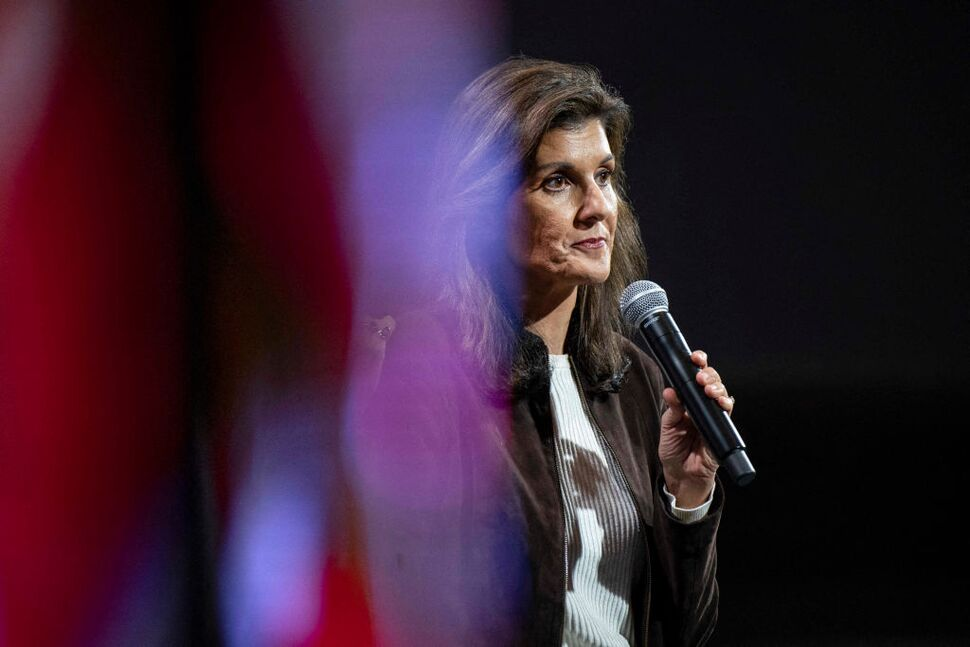On February 6th, 2024, in an embarrassing upset for the Nikki Haley campaign, Nikki Haley lost Nevada’s non-binding Presidential primary to the option “none of these candidates,” placing second overall with just 32% of the vote. Due to a quirk of Nevada’s presidential primary system, Trump was not on the ballot. In Nevada, Presidential Primary candidates can be listed either on the primary ballot or the caucus ballot but not both. It is then up to the party to decide how to apportion the delegates from the winners of these two contests. The Nevada Democratic Party shifted to an all-primary system for awarding delegates, while the Nevada Republican Party held that only those who got votes in the Nevada caucuses would receive delegates. Trump filed for the Caucasus ballot, joined by Ryan Binkley, with most other contenders on the ballot having dropped, including Vivek Ramaswamy and Chris Christie. Meanwhile, the Nevada primary ballot consisted of Nikki Haley and several presidential longshots, with other candidates like Tim Scott and Mike Pence having already dropped out of the race. Unsurprisingly, Trump swept the Nevada caucuses with 99.1% of the vote, gaining all 26 of Nevada’s delegates.
So why, then, if the Caucasus were the only race that mattered for delegates, did Nikki Haley file for the primary? The answer to this question lies in the strategic choices candidates make to keep building their campaign, gaining the all-important funding, endorsements, screen time, and, of course, poll numbers, which signal to prospective voters the strength and popularity of the candidate. Ideally, this momentum is converted into wins for the candidate later, even if they lose some of the first states. The key to Presidential elections is to beat expectations. With the Trump campaign lobbying hard for a split primary caucus system in Nevada and a deep pre-existing organization with loyal campaign activists willing to slog through an in-person caucus, Trump already had the advantage. So it is likely that Nikki Haley opted for a symbolic win, placing first on a relatively uncontested primary ballot in a state that has been a bastion of Trump support. This would have given her a much-needed momentum boost going into the South Carolina primary on February 24th.
If this was Haley’s campaign strategy, it sadly backfired. As stated earlier, she lost to None of these candidates, a uniquely Nevada option, which won the primary, garnering 62% of the vote. According to U.S. News and ABC, the Haley campaign downplayed the loss, saying that “we haven’t spent a dime or ounce of energy in Nevada” and calling the primary and caucus a rigged game by the Nevada Republican party to support Trump. A claim that has been repeatedly denied by the Nevada Republican party and doesn’t entirely play out with interviews by voters on the streets. According to USA Today interviews with Nevada Republican primary voters, many were confused that Trump wasn’t on the ballot. One primary voter, Ron Stanley, said, “ I wanted Trump to be there.” When he learned that Trump had chosen to skip the primary, he voted for none of these candidates as a protest against the Nikki Haley campaign.
Turnout overall was low for both Primary and Caucasus this year and lacked the same energy as in years past. This may be due to the seemingly inevitability of Trump’s win in the states. In other news, Biden won the Nevada Democratic primary handily with 89.4% of the votes, and none of these candidates placed second at 5.6%.
Overall, it appears the Nikki Haley campaign will continue to have an uphill battle against Republican front-runner Donald Trump. Haley is not picking up the votes she needs among the core Republican party demographics, mainly the working-class voters, to beat Trump. This group continues to throw solid support from the Trump campaign despite his many legal problems. Currently, Trump is leading Nikki Haley in her home state of South Carolina by 58% to 32%. What this means for the South Carolina Primary on February 24th is anyone’s guess. Still, it seems clear that despite the many legal and political challenges it has faced, the Trump campaign continues to be a formidable opponent with strong influence over the national and state Republican party structure.
ALLISON JOYCE|GETTY IMAGES
Republican presidential hopeful and former UN Ambassador Nikki Haley speaks at a rally at the Etherredge Center on Feb. 5, 2024, in Aiken, S.C.

